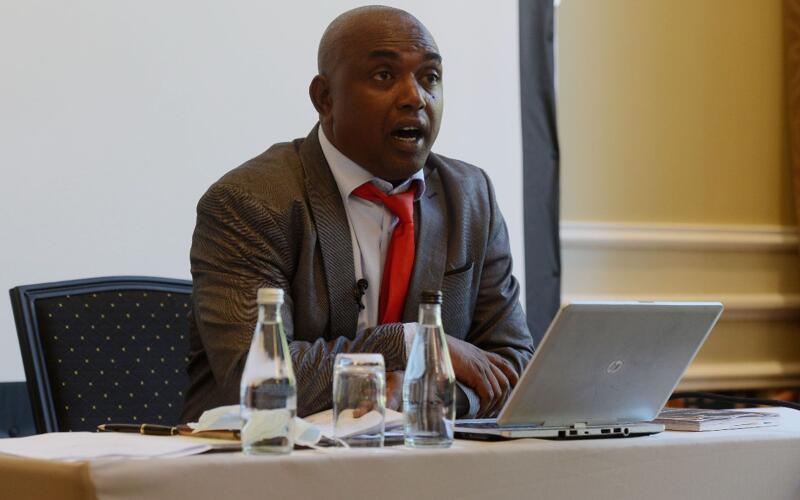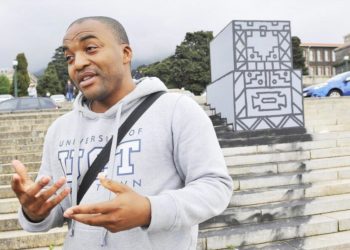More than 6 000 clients who claim they have been racially or otherwise discriminated against by South African banks have come together in a class-action suit against the banks.
An urgent interdict against Nedbank was heard in the Western Cape High Court two weeks ago, to prevent it closing the Sekunjalo Group of companies’ accounts.
Cape Town – More than 6 000 clients who claim they have been racially or otherwise discriminated against by South African banks have come together in a class-action suit against the banks.
Represented by Johannesburg law firm Gardee Godrich Attorneys, the clients will apply to intervene in proceedings instituted by Sekunjalo Group executive chairman Dr Iqbal Survé and 42 others at the Western Cape Equality Court.
Attorney Godrich Gardee, who has been involved in a number of public litigations, said his clients would have brought their own case independently, but that the Sekunjalo matter had acted as a trigger to spur them on.
He said his clients were people overbilled on interest on their mortgages and whose bank accounts were arbitrarily terminated due to their purportedly being risks to the banks.
“The conduct of these institutions goes against the provisions of the Constitution, the Promotion of Administrative Justice Act and the Promotion of Equality and Prevention of Unfair Discrimination Act, and the public has long been defenceless against these commercial giants,” Gardee said.
He said individuals or organisations that had their accounts, credit and loan facilities terminated without good cause or on the basis of racial discrimination, could join the class action. They needed to make contact via the website www.gardeeattorneys.co.za.
“Our clients invite the South African public to make contact with us and register their interest to fight against the boundless public power exercised by banks and other financial institutions,” Gardee said.
He was convinced the application would succeed as his firm has evaluated the facts presented by its clients, and if unsuccessful they would pursue the matter through appeals all the way up to the Constitutional Court, if necessary.
“We understand the magnitude and significance of this matter and we are committed in this fight against the unconstitutional and discriminatory conduct by the banks and other financial institutions.”
Gardee accused banks of taking advantage of their monopoly because the country has no state bank and had there been a state bank, all 1.5 million state employees would bank with it.
He said the banks would find it difficult to sustain their business with just corporate clients, many of whom were reputational risks themselves.
When reached, FNB said it had not received any court papers relating to the matter. Efforts to get comments from the other banks drew a blank at the time of going to press.
An urgent interdict against Nedbank was heard in the Western Cape High Court two weeks ago, to prevent it closing the Sekunjalo Group of companies’ accounts.
In granting the interdict, Judge Matthew Francis said given that the Sekunjalo Group was engaged in other legal action about the same matter, he could not hear the merits of the case in the high court, as it did not have the jurisdiction because the matter was to be heard at the Equality Court and the Competition Commission.
In his ruling, Judge Matthew Francis said transformative justice had an important role in South Africa’s banking sector. Citing constitutional court judgments, Judge Francis was scathing about Nedbank, calling it unfair.
“It appears to me it is fundamentally unfair and contrary to public policy for a bank to unilaterally decide to close an account, place the proceeds of any monies standing to the credit of the account holder in that bank’s suspense account, and the bank then retains the interest earned.
“I must add that although it is not evident in the facts before me that the contract between Nedbank and the respondents contain a clause which permits Nedbank to unilaterally appropriate any interest earned on monies in a suspense account, if such a clause does exist, it and/or the enforcement thereof could arguably be unfair and contrary to public policy,” the judge said.
In court papers, Dr Survé said there was evidence of collusion between the country’s major banks, as they all followed the same patterns in severing ties with Sekunjalo and related entities.
He said the banks had a serious case to answer as they had violated the group’s constitutional rights.
Dr Survé is asking the court to declare that the banks’ conduct constitutes unfair discrimination, and that their decisions to close the group and its related entities’ bank accounts should be overturned.
When reached FNB, said it had not received any court papers relating to the alleged matter. Efforts to get comments from the other banks drew a blank at the time of going to press.
mwangi.githahu@inl.co.za


















